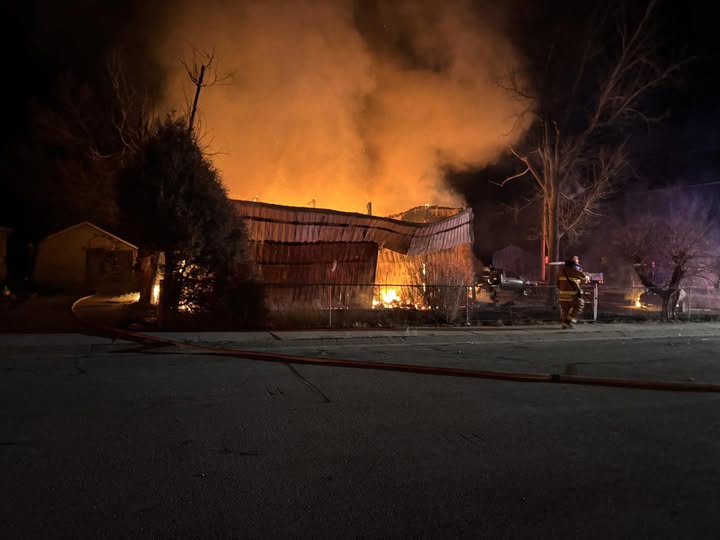UNDATED – For the past 20 months, South Dakota’s U.S. District Court has had a judicial vacancy waiting to be filled by President Joe Biden’s administration, prompting political scrutiny of the process and a shuffling of workloads for other federal judges.
Now the situation enters a new realm of urgency, with a looming deadline and another judge on the cusp of retirement. Biden, a Democrat up for re-election in 2024, could seat two district judges to a heavy Republican state that already has a stable of Democratic-chosen lifetime appointees from the Clinton and Obama presidencies.
Veronica Duffy, a federal magistrate judge in Sioux Falls, is the latest candidate to be recommended from South Dakota for the district bench. So why hasn’t anyone been formally nominated for approval by the U.S. Senate?
News Watch spoke with several people involved in the recommendation process, all of whom cited a variety of reasons – rather than one convenient explanation – for the delay in filling the South Dakota vacancies. They also agreed that not having the allotted number of full-time judges for nearly two years in civil and criminal courts is a problem that transcends politics.
The district of South Dakota – which consists of Southern (Sioux Falls), Northern (Aberdeen), Central (Pierre) and Western (Rapid City) divisions – handled 822 criminal and civil cases combined in 2022, according to Matt Thelen, clerk of courts.
“Federal courts in South Dakota are really busy,” said Neil Fulton, dean of the University of South Dakota School of Law and a chief of staff under former Gov. Mike Rounds.
“The criminal dockets are heavy because we have so much Indian Country jurisdiction and there’s a pretty robust civil docket, so it has a real impact on a lot of folks when there are vacancies for a long period of time.”
Judge Jeffrey Viken of Rapid City retired on Oct. 1, 2021, but took senior status, a process by which qualified judges assume a reduced workload and create a federal vacancy. Viken continues to handle most of the criminal cases in the Western Division, including 174 (87%) of the pending 200 felony cases, according to Thelen.
The rest of the division’s docket – including the entire civil caseload – has been distributed among Chief Judge Roberto Lange (Central, Northern Divisions), District Judge Karen Schreier (Southern Division), and two judges on senior status, Lawrence Piersol and Charles Kornmann.
Schreier announced in January that she plans to retire and take senior status upon the confirmation of her successor. That means there are two current lifetime seats that the Biden administration can fill.
Viken has a firm date of Oct. 1, 2023, when he intends to fully retire. When that happens, his entire caseload will need to be reassigned among the district’s other judges. There’s also the possibility of bringing in judges from other jurisdictions to help, but Thelen said there are no current plans to do that.
The Western Division handled nearly 40% (194 of 496) of the South Dakota criminal cases filed in 2022, followed by the Southern Division with 133 (27%), Central with 118 (24%) and Northern with 53 (11%).
“We look forward to the nomination of a capable person to take (Viken’s) judgeship, and we very much hope that that nomination comes soon,” said Thelen. “We’re working hard to administer timely and proper justice to the fullest extent possible.”
The sense of urgency is compounded by the political reality that judicial confirmations become more daunting as a presidential election nears, especially in a state with two senators – John Thune and Rounds – from the opposite party of the White House.
Thune, the Senate Minority Whip, and Rounds have been watched closely by South Dakota Democrats for signs of impeding the judicial nomination process.
But Brendan Johnson, a former U.S. attorney and son of former Democratic U.S. Sen. Tim Johnson, told News Watch that he doesn’t believe South Dakota’s senators are at fault for the delay.
“I do not believe anyone is conspiring to keep Democratic nominees off the South Dakota District Court bench,” said Johnson, now in private practice with the Robins Kaplan law firm. “I think everyone involved in this process, regardless of politics, recognizes the need to get these positions filled sooner rather than later. I place zero blame on (Thune and Rounds).”
Rounds told News Watch in a statement that his office “continues to have ongoing discussions with the White House concerning judicial nominees. I will not comment on recommendations to the White House or timelines at this time.”
Thune’s office did not respond to requests for comment on the judicial vacancies.
Part of the problem is the lack of a Democratic Party standard-bearer in South Dakota to shepherd the process of identifying, recommending and championing qualified candidates.
In most states, the recommendation process would be handled through the office of a Democratic statewide officeholder, as when then-Sen. Johnson shepherded the 2009 appointments of Viken and Lange under the Barack Obama administration.
With no statewide elected Democrats in South Dakota, the task fell to former U.S. Attorney and Democratic Party chair Randy Seiler, whose top choice fell through in April 2021 when former U.S. Rep. Stephanie Herseth Sandlin announced her intention to remain as president of Augustana University in Sioux Falls.
Seiler, who later recommended Duffy and was in the process of turning over party chairperson reins to Jennifer Slaight-Hansen, died in April after suffering a heart attack while running at Oahe Dam near Pierre.
Fulton, a former federal public defender in the 8th U.S. Circuit Court of Appeals, said that as the 2024 presidential election draws closer, with a potential shift in power in the White House and Senate, “you’re not going to see out-of-party senators racing to confirm judges.”
But he stopped short of saying that South Dakota’s GOP senators don’t want to see the spot filled under a Democratic administration.
“In fairness, I think everyone wants to get this right, whether it’s the White House or those in the Senate,” said Fulton. “Are there politics involved? I’m sure there are. But there’s also, I think for South Dakota, the acknowledgement that it’s an important decision, and there’s a degree of wanting to get it right as opposed to just getting it done.”











